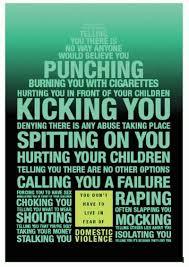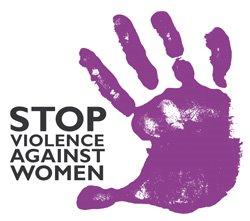Violance Against Women Act
The Violence Against Women Reauthorization Act (VAWA) of 2013 seeks to address the violence women face on campus: highest rates of stalking, highest risk of non-fatal intimate partner violence, and 20-25% of female students experiencing rape or attempted rape. This revised legislation creates the following updates to the Jeanne Clery Act:
Transparency: Incidents of domestic violence, dating violence, sexual assault, and stalking will be disclosed in the Annual Security Report that maintains crime statistics. Any student or employee reporting victimization of one of these crimes will be provided with their rights to:
- Be assisted by campus authorities if reporting a crime to law enforcement
- Change academic or work situations to avoid a hostile environment
- Obtain or enforce a no contact directive or restraining order
- Have a clear description of their institution's disciplinary process and know the range of possible sanctions
- Receive contact information about existing counseling, health, mental health, victim advocacy, legal assistance, and other services available both on-campus and in the community
Accountability: VAWA clarifies minimum standards for institutional disciplinary procedures covering domestic violence, dating violence, sexual assault, and stalking to ensure:
- Proceedings shall provide a prompt, fair, and impartial investigation and resolution and are conducted by official receiving annual training on domestic violence, sexual assault, and stalking
- Both parties may have others present during an institutional disciplinary proceeding and any related meeting, including an advisor of their choice
- Both parties will receive written outcomes of all disciplinary proceedings at the same time
Education: Training and programming will be provided to students and employees addressing the issues of domestic violence, dating violence, sexual assault and stalking. Educational programs shall include:
- Prevention and awareness programs for all incoming students and new employees
- Safe and positive options for bystander intervention
- Information on risk reduction to recognize warning signs of abusive behavior
- Ongoing prevention and awareness programs for students and employees
Collaboration: VAWA establishes collaboration between the U.S. Departments of Justice, Education, and Health and Human Services to collect and disseminate best practices for preventing and responding to domestic violence, dating violence, sexual assault, and stalking.

Domestic violence: The term domestic violence includes felony or misdemeanor crimes of violence committed by a current or former spouse or intimate partner of the victim, by a person with whom the victim shares a child in common, by a person who is cohabitating with or has cohabitated with the victim as a spouse, by a person similarly situated to a spouse of the victim under the domestic or family violence laws of the jurisdiction receiving grant monies, or by any other person against an adult or youth victim who is protected from that person's acts under the domestic or family violence laws of the jurisdiction. (42 USC 13925)
Dating violence is defined as violence committed by a person who is or has been in a social relationship of a romantic or intimate nature with the victim; and where the existence of such a relationship shall be determined based on a consideration of the following factors; the length of the relationship, the type of relationship, and the frequency of interaction between the persons involved in the relationship. (42 USC 13925)
Stalking means engaging in a course of conduct directed at a specific person that would cause reasonable person to fear for his or her safety or the safety of other; or suffer substantial emotional distress. (42 USC 13925)
If you have been a victim of sexual assault, domestic violence, dating violence, or stalking, you have the right to report the crime to the police department. As an encouragement to report, the District Police Department is committed to the following guarantees:
- WE WILL meet with you privately and you may be accompanied by a personal advocate.
- WE WILL provide a female officer to conduct the initial interview, if requested, and if one is available.
- WE WILL fully investigate your case, regardless of the gender, race, ethnicity, sexual orientation, age national origin, religion or disability of the parties involved.
- WE WILL not pre-judge you or your actions. Victims are not responsible for the criminal actions of others.
- WE WILL treat you and your case with courtesy, sensitivity, and understanding.
- WE WILL assist you in arranging for your medical needs and/or hospital treatment.
- WE WILL provide you with advocate and counseling referral information.
- WE WILL not release your name to the public, or to the press, upon request.
- WE WILL discuss and explain the criminal justice process. You will be kept informed as to the progress of the investigation.
- WE WILL be available to answer your questions as the investigation and prosecution unfolds.
- WE WILL assist you in the student conduct process and notify you of the outcome.
- WE WILL assist you in, and work with the college, if a classroom change is needed.
San Bernardino Community College District Standards of Student Conduct Policy 5500 states disciplinary action may be imposed on recognized individual students, student organizations and/or any San Bernardino Community College District faculty or staff responsible for a sexual assault, domestic violence, dating violence, or stalking. San Bernardino Community College District disciplinary procedures depend on the outcome of the disciplinary hearing and may range from suspension to expulsion. The institution will, upon written request, disclose to the alleged victim survivor of a crime of violence, or a non-forcible sex offense, the results of any discipline proceeding by such institution against a student or staff member who is the alleged perpetrator of such a crime or offense. Violators are subject to San Bernardino Community College District disciplinary actions, criminal prosecution, fine and imprisonment. The accuser and the accused are entitled to the same opportunities to have others present during a campus disciplinary proceeding and both shall be informed of the outcome. Student victims of sexual assault, domestic violence, dating violence, or stalking, also have the option of changing their academic schedule after an alleged assault, if such changes are reasonably available.
Click here to view the SBCCD Sexual Assault, Domestic Violence, Dating Violence and Stalking Student Packet. This packet provides information on reporting sexual assault, domestic violence, dating violence or stalking, steps involved in an investigation, if an incident will affect your academics or employment, support and counseling resources within the District and local community, and how to file a restraining order.
Any San Bernardino Community College District student or employee who is suspected of sexual assault, domestic violence, dating violence, or stalking, is subject to both criminal prosecution and disciplinary action under campus policies. Campus disciplinary action can be initiated even if criminal charges are not pressed.
And San Bernardino Community College District employee accused of sexual assault, domestic violence, dating violence, or stalking, is subject to the applicable provisions and disciplinary action in accordance with District Policies and Procedures. Sanctions for misconduct include, but are not limited to, warning(s), censure, demotion, suspension, or termination of employment.
Related Links
- NotAlone.gov : Information for students, schools, and anyone interested in finding resources on how to respond to and prevent sexual assault on college and university campuses and in our schools.
- Law Resources : Information on Legal Resources for Domestic Violence
1 in 4 women experience physical violence from an intimate partner.
Women are 4 times more likely to be beaten, and 9 times more likely to be hurt by choking or suffocating.



